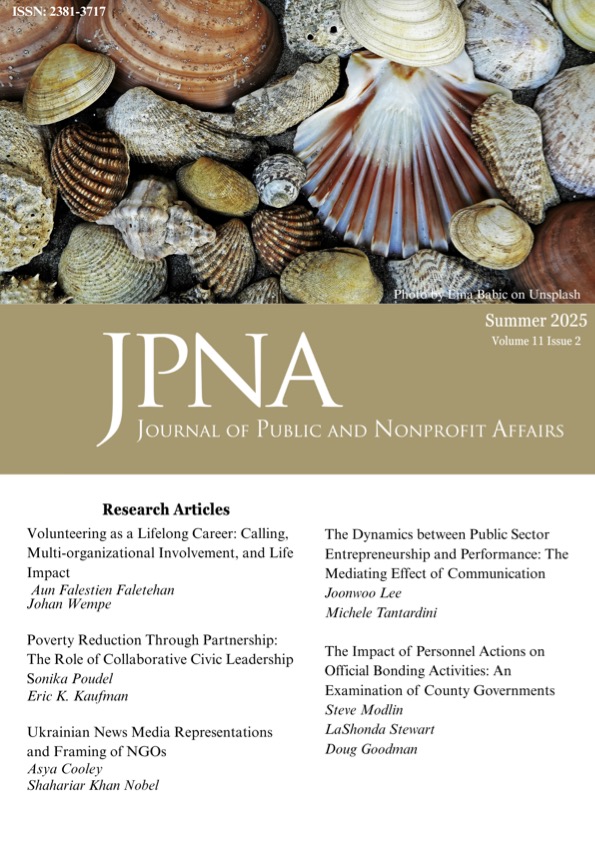The Impact of Personnel Actions on Official Bonding Activities: An Examination of County Governments
DOI:
https://doi.org/10.20899/jpna.xq9acn31Keywords:
official bonding, risk management, local government management, Local Government Finance, internal controlsAbstract
The protection of government assets is often a public policy feature that can easily be overlooked. Proper bonding of public officials with asset responsibilities provides an assurance of resource protection and public trust. This study examines the level of impact that internal and external county characteristics have on the incremental bonding practices of appointed and elected government officials in North Carolina. Preliminary findings indicate more standardized bonding practices for appointed officials while bonding for elected officials is more discretionary to a point. Traditional finance office staff and audit findings influenced bond amount increases for both appointed and elected officials with specific importance placed on the accounts payable position. Implications of the study include the importance of well-trained finance personnel that can limit unnecessary risks and additional bonding increases.
Downloads
Published
Issue
Section
License
Authors who publish with this journal agree to the following terms:
- Authors retain copyright and grant the journal right of first publication with the work simultaneously licensed under a Creative Commons Attribution License that allows others to share the work with an acknowledgment of the work's authorship and initial publication in this journal.
- Authors are able to enter into separate, additional, contractual arrangements for the non-exclusive distribution of the journal's published version of the work (e.g., post it to an institutional repository or publish it in a book), with an acknowledgment of its initial publication in this journal.
- Authors are permitted and encouraged to post their work online (e.g., in institutional repositories or on their website) prior to and during the submission process, as it can lead to productive exchanges, as well as earlier and greater citation of published work (see, The Effect of Open Access).







